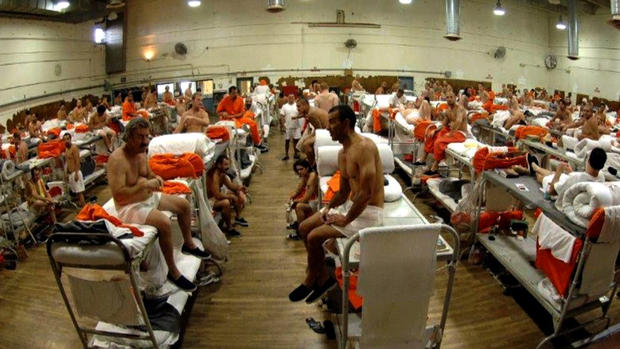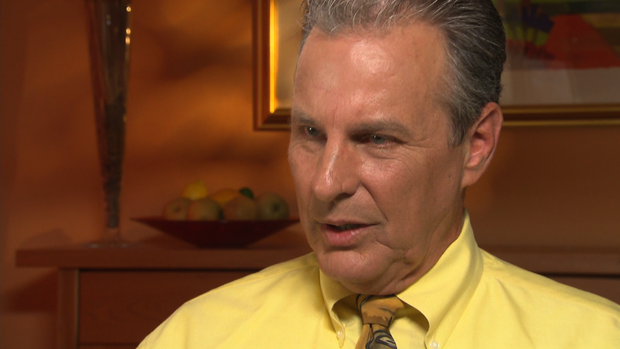"Three-strike" lifers get a second chance in Calif. prisons
(CBS News) FOLSOM, Ca. - California prisons are so overcrowded that the U.S. Supreme Court ruled that the conditions amount to cruel and unusual punishment. The state is caught between a tight budget and its "three strikes" law, which imposes a life sentence after convictions. Last Fall, voters approved a plan to release some of those lifers.
Proposition 36 allows three-strikers to ask judges to let them out early.
Forty-six-year-old Aaron Collins thought he'd only leave prison in a coffin.
"Life meant that you would die in prison. Life was life," Collins said.
Righting the wrongs of "Three Strikes" life sentences
Supreme Court to Calif.: Cut prison population
Report: Ca. freed 450 high-risk prisoners in 2010
New law lets crack-cocaine offenders out early
His crime? Selling a small amount of marijuana to other inmates. Collins was already serving time for two prior convictions: A non-violent burglary and another robbery. That made him a third striker.
"It just, like the whole world came crashing down on me. Because everybody who gets 25 years to life is normally a convicted murderer or a convicted rapist or a convicted person that has a violent crime, you know?" he said.
Collins said he knew there was a three-strikes law, but he took the risk anyway.
"Foolishness," he said.
Under the new law, Collins is one of nearly 3,000 third-strike inmates who can now petition a judge for re-sentencing.
That is frightening to people like Marc Klaas. In 1993 his 12-year-old daughter Polly was snatched from her bedroom and murdered by Richard Allen Davis. Davis was a violent repeat offender, and Klaas believes all repeat offenders are dangerous.
"These individuals know darn well that if they misstep again, they are looking at the potential of spending the rest of their lives in prison," Klaas said. "This should be an incentive to put their lives back together, but they don't. They commit the crime anyway."
Watch: A father's search for his daughter
"When does it stop? Seriously, when does it stop?" Klaas added.
This month, Collins became one of the first third-strikers to make their case in front of a judge.
The judge ruled he could be released.
"At 46 years old, I'm starting my life all over again," he said. "I wanna go to Starbucks. I wanna go to Olive Garden."
Collins said even though he continued to commit crimes in prison, he won't be doing it anymore.
"I think the fear is returning back to prison," he said. "I think that this reality check of 25 years to life does something to you. It makes you wonder, like 'Wow, what the hell have I done with my life?'"
Most of these inmates don't go out with any support -- just $200 and a "good luck." So, if they re-offend -- and it's likely that many will since 63 percent of parolees re-offend -- then that new crime is considered a third strike. Under the new law judges have more discretion, so a judge will decide whether a life sentence in now appropriate.



